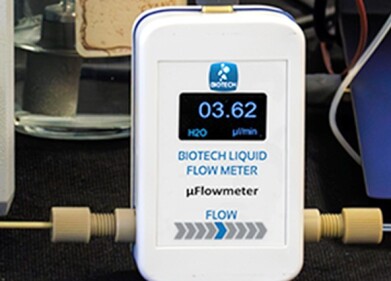HPLC, UHPLC
Doping tests also work on horses
Aug 16 2012
A novel liquid chromatography-tandem mass spectrometry method for detecting the use of the performance-enhancing drug peginesatide in humans also works for horses, according to biochemists in Germany.
The drug is an example of an erythropoiesis-stimulating agent (ESA), which means it can mimic the ability of the erythropoietin (EPO) hormone, boosting the creation of red blood cells in the body.
It was originally developed to treat anaemia in patients with chronic kidney failure, but it has been misused by professional athletes to improve their performance as the greater the red blood cell count in the body, the more oxygen is deliver to the muscles.
Athletes are regularly testing for EPO, but many will not work for peginesatide, which has a completely different structure.
However, Mario Thevis and his colleagues at the German Sport University in Cologne have developed a test that would be able to detect peginesatide in human blood and urine samples.
They based this test on liquid chromatography-tandem mass spectrometry, but used the enzyme subtilisin to digest the protein and peptides in the samples rather than trypsin.
In the forthcoming publication European Journal of Mass Spectrometry, Mr Thevis and his colleagues indicate that this method also works with horses, which can also have their performance altered by ESAs like peginesatide.
Testing the method on samples of horse serum spiked with peginesatide, the team of researchers showed the drug could be detected at concentrations as low as 10ng/mL. This kind of sensitivity should allow the method to detect peginesatide in horse blood several days after it has been administered.
According to Thevis, this all means that "the method is suitable for routine use in the horse sports drug testing arena".
Don Catlin, a US drug expert at the University of California, Los Angeles (UCLA), recently noted that mini-doses of erythropoietin (EPO) and EPO-like drugs as well as human growth hormone (HGH) may have escaped detection in the anti-doping tests at the London 2012 Olympics, despite the 5,000 urine and blood samples that were taken during the Games.
Posted by Fiona Griffiths
Digital Edition
Chromatography Today - Buyers' Guide 2022
October 2023
In This Edition Modern & Practical Applications - Accelerating ADC Development with Mass Spectrometry - Implementing High-Resolution Ion Mobility into Peptide Mapping Workflows Chromatogr...
View all digital editions
Events
Nov 18 2024 Shanghai, China
Nov 18 2024 Plainsboro, NJ, USA
Nov 20 2024 Karachi, Pakistan
Jan 20 2025 Amsterdam, Netherlands
Feb 03 2025 Dubai, UAE



.jpg)









